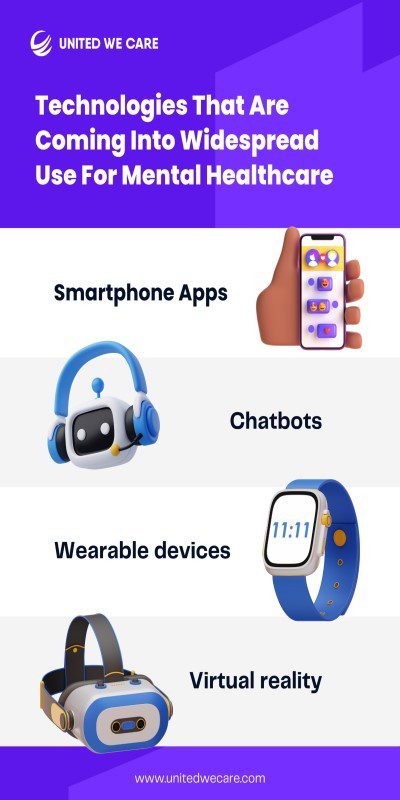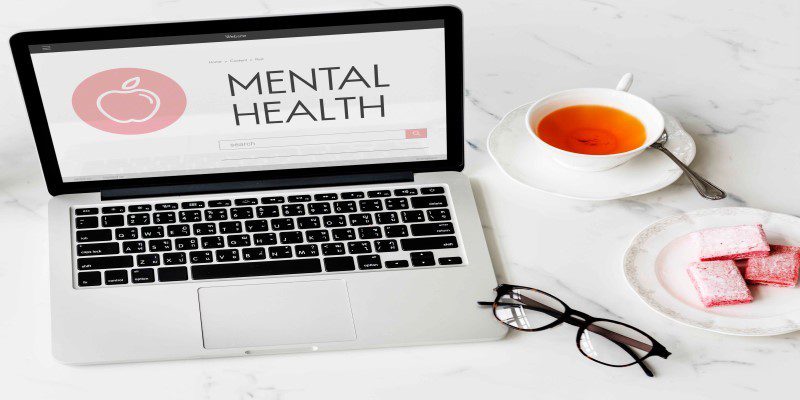Introduction
The role of technology in mental health is integral in terms of the effect it has on us as well as the frontiers it has opened in terms of support and treatment. Our mental health and wellness are deeply intertwined with the use of technology.
The pandemic affected our mental health and wellness to a great extent. It was also the time when we started relying more and more on technology for social connection, work, managing our health, and doing miscellaneous things.
We may be very much digitally connected to the world, but we feel more isolated than ever. We have quality healthcare available due to advancements in technology, although there is no guarantee of responsible data practices.
Just like anything else, technology use has its pros and cons. However, it is possible to be mindful about how and how much technology we use and how it affects us.
The key is to strike a balance: learn how to use technology to our benefit and advantage. In this article, we’ll explore the link between technology and mental health and how we can make the most of it.
The Role of Technology in Mental Health and Wellness
Over 80% of people in India do not have access to mental health treatment due to a shortage of proper infrastructure and facilities. [1]
We also have an insufficient number of mental healthcare providers to fill this care gap.
India has less than eight psychiatrists per 1,00,00,000 population as compared to over 600 psychiatrists per the same amount of population in high-income countries. [2]
The stigma around mental health is also widely prevalent in our country. One-third of young people display poor knowledge of and negative attitudes towards people with mental health problems. [3]
All these combined, we are in dire need of accessible and flexible mental health support.
Enter technology.
With the rapid development of technology, we are better able to assess, monitor, and treat mental health conditions.
When we use these tools and resources to self-manage our mental and emotional well-being, we are also generating and offering our data to physicians for tailored solutions.
Technologies that are coming into widespread use for mental healthcare
Some emerging technologies that are coming into widespread use for mental healthcare solutions are:

- Smartphone apps: Improve personal well-being through activities such as self-help exercises, improving thinking skills, mindfulness and meditation, etc.
- Chatbots: Provide assessments and suggestions to improve wellbeing by simulating conversations with users [4]
- Wearable devices: Monitor changes in physiological measurements through biometric sensors and features like heart rate variability (HRV) and electrodermal activity (EDA), which help track and manage stress levels
- Virtual reality: An immersive experience that is proven effective in treating phobias and PTSD
These innovations, along with several others that are under development, are transforming the space of mental healthcare rapidly.
Pros and Cons of Technology in Mental Health and Wellness
With such leaps of advancement in technology, we have significant benefits as well as challenges in managing our mental health and wellness.
Benefits of technology in mental health:
- Accessibility: Support and treatment are available at our convenience, anytime and anywhere
- Personalization: We can receive tailored support and interventions through apps and wearable devices
- Data collection: Analysis of the collected data, such as mood, movement, location, etc., may help in the prevention, early detection, and treatment of mental illness
Challenges of technology in mental health:
- Human connection: Lack of face-to-face interactions such as in-person therapy, peer support, and community participation may create a feeling of loneliness and disconnection
- Accuracy and effectiveness: Many commercially developed mental healthcare apps lack rigorous scientific testing. Additionally, some technology may draw on biased data sets that do not represent certain ethnic and age groups. This results in inequality in the experience of mental healthcare [5]
- Privacy concerns: Lack of transparent data and privacy policies, data breaches, and cyberattacks pose a threat to the misuse of sensitive personal information
The use of technology in mental health has both pros and cons. There are some measures we can take as users to ensure we are engaging with top-quality healthcare providers and tools. And there are some measures tech corporations can take to ensure better regulation of our data.
Striking a Balance Between Technology and Mental Wellness
The rampant use of technology, especially social media, is linked to lower social skills, motivation, emotional intelligence, and empathy, increased conflict with others, cognitive disorders, and depression. [6]
It is possible to reduce the negative effects of technology use by making some changes on a personal level, such as:
- Going on a digital detox and setting boundaries: We must regularly disconnect from the online world-social media, emails, notifications, etc. and use this time to engage in activities that nourish our mental health, such as reading, connecting with a friend, walking in nature, etc. Having designated times to engage with digital devices and implementing tech-free hours in our day can be helpful.
- Being mindful of our tech use and content consumption: It is beneficial to keep track of our screen time and its impact on our emotions, unsubscribe from any negative or anxiety-inducing content, etc.
- Using mental health apps as tools, not crutches: It is best to combine online and in-person mental health support for effective results.
While using online mental health support, it is important to be cautious about the technology we’re using. Some ways to find credible support are:
- Asking your trusted healthcare provider for a recommendation of an online resource or app
- Finding a platform that offers automated support as well as opportunities to connect with a trained professional
- Choosing an app based on a tested treatment, such as cognitive behavioral therapy (CBT)
Striking a balance between technology use and our mental wellness can be done by understanding our personal challenges and corporate loopholes. This way, we can find what works best for us and make the most out of technology use for our mental health.
Conclusion
Tech companies and mental healthcare providers are coming together to shape a future where we can safely rely on technology to address our concerns.
This advancement comes with its pros and cons. While technology is making mental healthcare and support more accessible and personalized, it also raises some concerns about the lack of human connection, data regulation, and privacy.
It is important to strike a balance between our technology use and its effect on our mental health. On a personal level, we can practice setting boundaries around our tech use. On a digital level, we can try finding the most credible tools and resources with the help of our trusted healthcare provider and by doing our research on the platforms.
As our technology improves, it will also address the current care gap and inequalities in experience. The United We Care app can be a useful resource in getting suitable support.
References:
[1] Ministry of Health and Family Welfare, Government of India, “National Mental Health Survey, 2015-16 – Mental Health Systems,” 2015. [Online]. Available: https://main.mohfw.gov.in/sites/default/files/National%20Mental%20Health%20Survey%2C%202015-16%20-%20Mental%20Health%20Systems_0.pdf. [Accessed: Oct. 10, 2023].
[2] S. Naqvi et al., “Mobile Health for Mental Health in Pakistan: Exploring Challenges and Opportunities,” BMC Psychiatry, vol. 19, no. 1, p. 32, Jan. 2019. [Online]. Available: https://www.ncbi.nlm.nih.gov/pmc/articles/PMC6341936/. [Accessed: Oct. 10, 2023].
[3] C. J. Graham et al., “Social Determinants and Mental Health: A Naturalistic Review of the Evidence,” BMC Psychiatry, vol. 20, no. 1, p. 295, Jun. 2020. [Online]. Available: https://bmcpsychiatry.biomedcentral.com/articles/10.1186/s12888-020-02937-x. [Accessed: Oct. 10, 2023].
[4] J. Marley and S. Farooq, “Mobile Telephone Apps in Mental Health Practice: Uses, Opportunities and Challenges,” BJPsych Bulletin, vol. 39, no. 6, pp. 288–290, Dec. 2015. [Accessed: Oct. 10, 2023].
[5] “Researchers Call for Bias-Free Artificial Intelligence,” Stanford News, May 14, 2021. [Online]. Available: https://news.stanford.edu/2021/05/14/researchers-call-bias-free-artificial-intelligence/. [Accessed: Oct. 10, 2023].
[6] S. Hosseinzadeh, “Mental Health and Technology: Challenges and Concerns,” Technology in Society, vol. 45, pp. 59-62, Feb. 2016. [Online]. Available: https://link.springer.com/article/10.1007/s11469-016-9684-0. [Accessed: Oct. 10, 2023].





